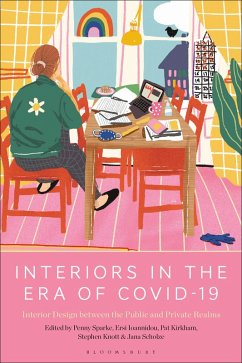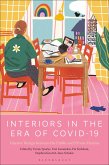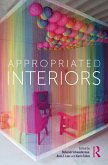The Covid-19 lockdowns caused people worldwide to be confined to their homes for longer and on a greater scale than ever before. This forced many unprecedented changes to the way we treat domestic space - as relationships shifted between the public and the private worlds, and homes were rapidly adapted to accommodate the additional roles of schools, offices, gyms, restaurants, making-spaces and more. Above all, our understanding of the home as a site to support and enhance the well-being of its inhabitants changed in a variety of novel ways.
Interiors in the Era of Covid is a collection of essays which explore the complex ways in which our inside spaces (contemporary and historical) have responded to Covid-19 and other human crises. With case studies ranging from US and Europe to Japan, China, Colombia, and Bangladesh, this is a truly global work which examines wide-ranging subjects from home-working and home technologies, to the impact of lockdown on people's identities, gender roles in the home, and the realities of domestic living with Covid in refugee camps.
Exploring the roles played by designers (both amateur and professional) in accommodating changing requirements and anticipating future ones - whether Covid or beyond - this book is a must-read for students and researchers in interior design, architecture, architectural and design history, and anyone interested in the home and the relationships between health and design.
Interiors in the Era of Covid is a collection of essays which explore the complex ways in which our inside spaces (contemporary and historical) have responded to Covid-19 and other human crises. With case studies ranging from US and Europe to Japan, China, Colombia, and Bangladesh, this is a truly global work which examines wide-ranging subjects from home-working and home technologies, to the impact of lockdown on people's identities, gender roles in the home, and the realities of domestic living with Covid in refugee camps.
Exploring the roles played by designers (both amateur and professional) in accommodating changing requirements and anticipating future ones - whether Covid or beyond - this book is a must-read for students and researchers in interior design, architecture, architectural and design history, and anyone interested in the home and the relationships between health and design.









